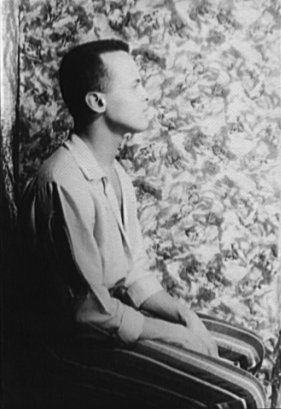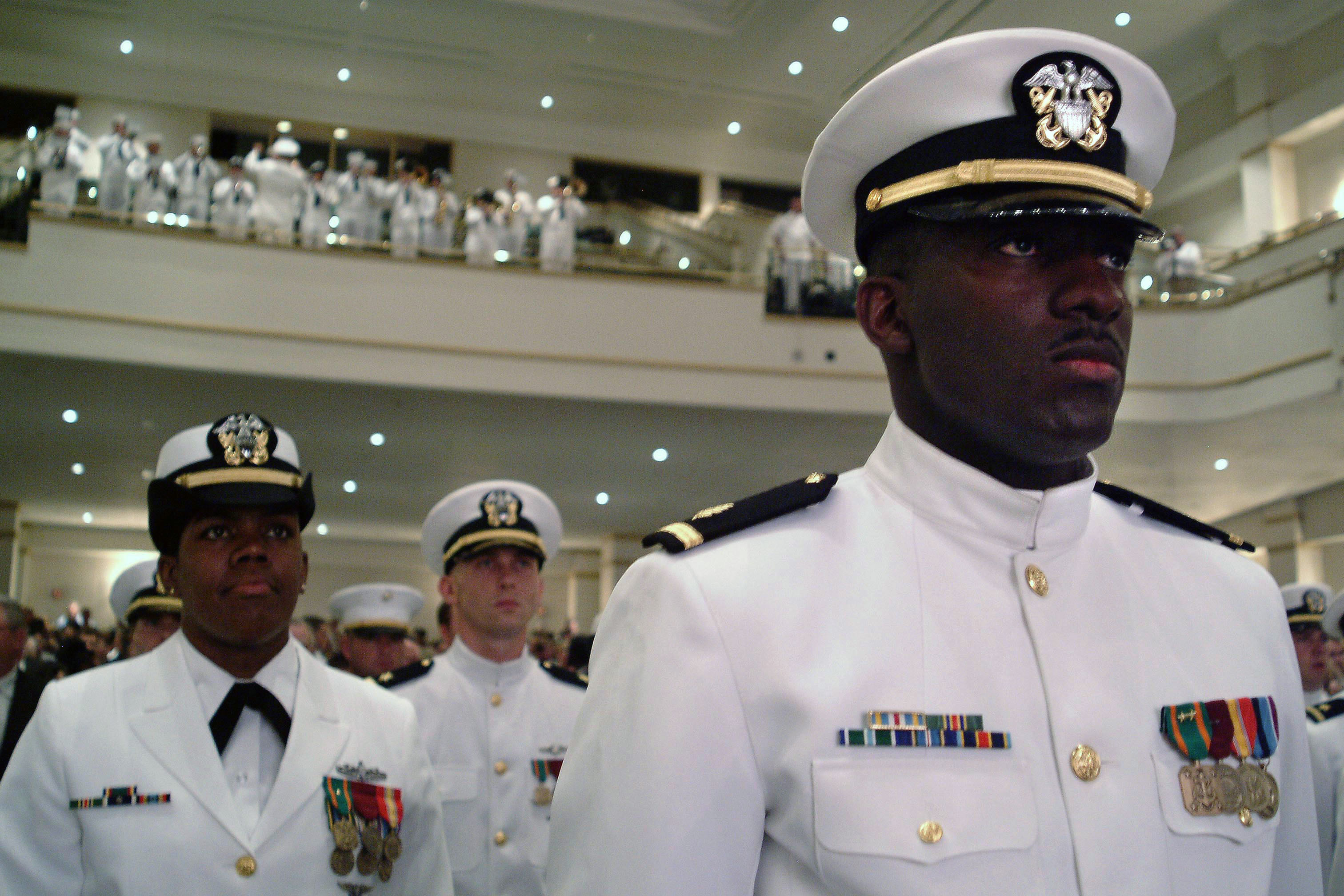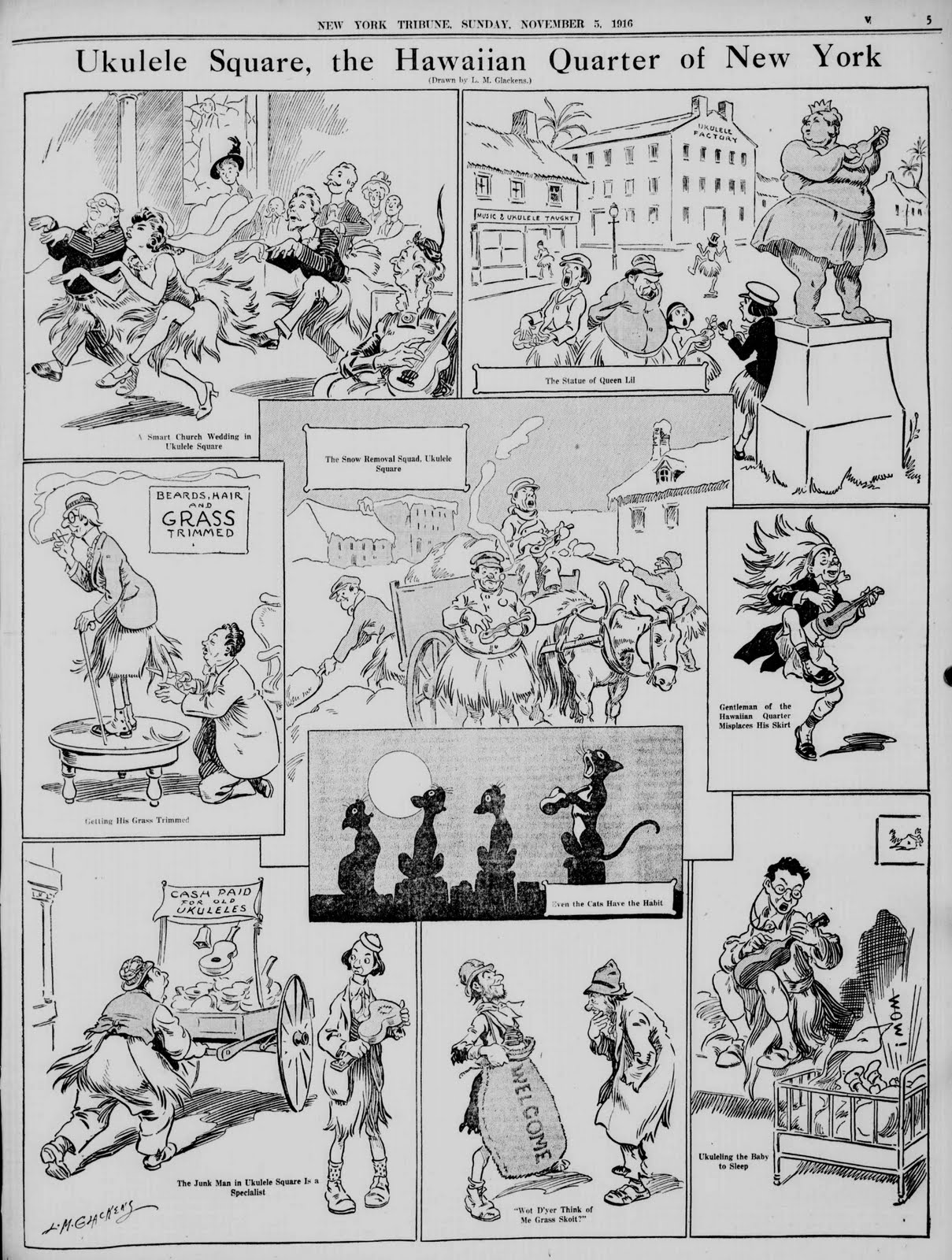|
Dave Guard
Donald David Guard (October 19, 1934 – March 22, 1991) was an American folk singer, songwriter, arranger and recording artist. Along with Nick Reynolds and Bob Shane, he was one of the founding members of The Kingston Trio. Guard was born in San Francisco and went to Punahou School in Honolulu in what was then the pre-statehood U.S. Territory of Hawaii. Upon completion of his final year of high school in 1952 at Menlo School, a private prep school in Menlo Park, California, he matriculated at nearby Stanford University, graduating in 1957 with a degree in economics. While an undergraduate at Stanford, Guard started a pickup group with Reynolds and Shane. Guard called his group Dave Guard and the Calypsonians, with a Weavers-style signature sound that was principally two guitars, a banjo, and rollicking vocals. Guard kept the group together after Reynolds and Shane left, changing the name of the Calypsonians to The Kingston Quartet. Then in 1957, when Reynolds and Shane agreed ... [...More Info...] [...Related Items...] OR: [Wikipedia] [Google] [Baidu] |
San Francisco
San Francisco (; Spanish language, Spanish for "Francis of Assisi, Saint Francis"), officially the City and County of San Francisco, is the commercial, financial, and cultural center of Northern California. The city proper is the List of California cities by population, fourth most populous in California and List of United States cities by population, 17th most populous in the United States, with 815,201 residents as of 2021. It covers a land area of , at the end of the San Francisco Peninsula, making it the second most densely populated large U.S. city after New York City, and the County statistics of the United States, fifth most densely populated U.S. county, behind only four of the five New York City boroughs. Among the 91 U.S. cities proper with over 250,000 residents, San Francisco was ranked first by per capita income (at $160,749) and sixth by aggregate income as of 2021. Colloquial nicknames for San Francisco include ''SF'', ''San Fran'', ''The '', ''Frisco'', and '' ... [...More Info...] [...Related Items...] OR: [Wikipedia] [Google] [Baidu] |
Stanford University
Stanford University, officially Leland Stanford Junior University, is a private research university in Stanford, California. The campus occupies , among the largest in the United States, and enrolls over 17,000 students. Stanford is considered among the most prestigious universities in the world. Stanford was founded in 1885 by Leland and Jane Stanford in memory of their only child, Leland Stanford Jr., who had died of typhoid fever at age 15 the previous year. Leland Stanford was a U.S. senator and former governor of California who made his fortune as a railroad tycoon. The school admitted its first students on October 1, 1891, as a coeducational and non-denominational institution. Stanford University struggled financially after the death of Leland Stanford in 1893 and again after much of the campus was damaged by the 1906 San Francisco earthquake. Following World War II, provost of Stanford Frederick Terman inspired and supported faculty and graduates' entrepreneu ... [...More Info...] [...Related Items...] OR: [Wikipedia] [Google] [Baidu] |
Frank Werber
Frank Nicholas Werber (March 27, 1929 – May 19, 2007) was a German-born American talent manager, restaurant owner and entrepreneur, who was particularly influential as the discoverer, manager and producer of The Kingston Trio in the late 1950s and early 1960s. Life and career Werber was born in Cologne, Germany, but moved with his parents as a young child to escape the Nazi regime, first to the Netherlands and then Belgium. His mother died, and after the start of World War II he and his father were captured and interned in Vichy France. They managed to escape, and fled to Africa and then to New York, arriving in 1941. "Behind the Kingston Trio: Frank Werber", Kingston Trio program notes, 1962, ''lazyca.com'' Retrieved 20 March 2 ... [...More Info...] [...Related Items...] OR: [Wikipedia] [Google] [Baidu] |
Calypsonian
A calypsonian, merriam-webster.com originally known as a '''', is a musician from the anglophone Caribbean who sings songs of the calypso genre. Calypsos are musical renditions having their origins in the West African tradition. Originally called "Kaiso" in , these song ... [...More Info...] [...Related Items...] OR: [Wikipedia] [Google] [Baidu] |
Eclecticism In Music
In music theory and music criticism, eclecticism refers to the use of diverse styles, either distinct from the background of an artist using them, or from culturally bygone eras and movements. The term can be used to describe the music of composers who combine multiple styles of composition; an example would be a composer using a whole tone scale In music, a whole-tone scale is a scale in which each note is separated from its neighbors by the interval of a whole tone. In twelve-tone equal temperament, there are only two complementary whole-tone scales, both six-note or ''hexatonic'' sc ... variant of a folksong in a pentatonic scale over a Diatonic and chromatic, chromatic counterpoint, or a tertian Arpeggio, arpeggiating melody over Quartal and quintal harmony, quartal or secundal harmonies. Eclecticism can also occur through Musical quotation, quotations, whether of a style, direct quotations of folksongs/variations of them—for example, in Mahler's ''Symphony No. 1 (Mahler) ... [...More Info...] [...Related Items...] OR: [Wikipedia] [Google] [Baidu] |
Caribbean Music
Caribbean music genres are very diverse. They are each synthesis of African, European, Arab, Asian, and Indigenous influences, largely created by descendants of African slaves (see Afro-Caribbean music), along with contributions from other communities (such as Indo-Caribbean music). Some of the styles to gain wide popularity outside the Caribbean include, bachata, merengue, palo, mambo, denbo, baithak gana, bouyon, cadence-lypso, calypso, soca, chutney, chutney-soca, compas, dancehall, jing ping, parang, pichakaree, punta, ragga, reggae, dembow, reggaeton, salsa, soca, and zouk. Caribbean music is also related to Central American and South American music. The history of Caribbean music originates from the history of the Caribbean itself. That history is one of the native land invaded by outsiders; violence, slavery, and even genocide factor in. Following Christopher Columbus' 1492 landing, Spain claimed the entire region as its own. That didn't sit well with either the nat ... [...More Info...] [...Related Items...] OR: [Wikipedia] [Google] [Baidu] |
Calypso Music
Calypso is a style of Caribbean music that originated in Trinidad and Tobago during the early to the mid-19th century and spread to the rest of the Caribbean Antilles and Venezuela by the mid-20th century. Its rhythms can be traced back to West African Kaiso and the arrival of French planters and their slaves from the French Antilles in the 18th century. It is characterized by highly rhythmic and harmonic vocals, and was historically most often sung in a French creole and led by a griot. As calypso developed, the role of the griot became known as a ''chantuelle'' and eventually, ''calypsonian''. As English replaced "patois" (Antillean creole) as the dominant language, calypso migrated into English, and in so doing it attracted more attention from the government. It allowed the masses to challenge the doings of the unelected Governor and Legislative Council, and the elected town councils of Port of Spain and San Fernando. Calypso continued to play an important role in politic ... [...More Info...] [...Related Items...] OR: [Wikipedia] [Google] [Baidu] |
Joe Gannon
Joe Gannon is a Philadelphia native, recording producer, director, musical stage lighting and production designer. Gannon's career began as road manager for the Kingston Trio in the band's early days of its greatest success. He later operated and managed Frank Zappa’s record company and produced records for CBS. Gannon also worked as road manager for Bill Cosby and staged Madonna's first film appearance. He toured internationally as a producer, director and lighting designer for such stars as Alice Cooper, Teddy Pendergrass, Luther Vandross, Barry Manilow, Julio Iglesias.Joe Gannon ''sickthingsuk.co.uk'', Retrieved October 31, 2007 The Kingston Trio In the early 1950s after serving the |
Sigma Nu
Sigma Nu () is an undergraduate Fraternities and sororities in North America, college fraternity founded at the Virginia Military Institute on January 1, 1869. The fraternity was founded by James Frank Hopkins, Greenfield Quarles and James McIlvaine Riley shortly after Hopkins witnessed what he considered a hazing ritual by upperclassmen at the Virginia Military Institute. The fraternity's existence remained secret until the founders publicly announced their new society on January 1, 1869. Since its founding, Sigma Nu has amassed more than 279 active and inactive chapters and colonies across the United States and Canada and has initiated more than 227,000 members. Sigma Nu, Kappa Alpha Order and Alpha Tau Omega make up the Lexington Triad. The fraternity's values are summarized as an adherence to the principles of love, honor, and truth. Because of its military heritage, Sigma Nu retains many military trappings in its chapter ranks and traditions, and places importance on the conc ... [...More Info...] [...Related Items...] OR: [Wikipedia] [Google] [Baidu] |
ROTC
The Reserve Officers' Training Corps (ROTC ( or )) is a group of college- and university-based officer-training programs for training commissioned officers of the United States Armed Forces. Overview While ROTC graduate officers serve in all branches of the U.S. military, the U.S. Marine Corps, the U.S. Space Force, and the U.S. Coast Guard do not have their own respective ROTC programs; rather, graduates of Naval ROTC programs have the option to serve as officers in the Marine Corps contingent on meeting Marine Corps requirements. In 2020, ROTC graduates constituted 70 percent of newly commissioned active-duty U.S. Army officers, 83 percent of newly commissioned U.S. Marine Corps officers (through NROTC), 61 percent of newly commissioned U.S. Navy officers and 63 percent of newly commissioned U.S. Air Force officers, for a combined 56 percent of all active-duty officers in the Department of Defense commissioned that year. Under ROTC, a student may receive a competitive, mer ... [...More Info...] [...Related Items...] OR: [Wikipedia] [Google] [Baidu] |
Ukulele
The ukulele ( ; from haw, ukulele , approximately ), also called Uke, is a member of the lute family of instruments of Portuguese origin and popularized in Hawaii. It generally employs four nylon strings. The tone and volume of the instrument vary with size and construction. Ukuleles commonly come in four sizes: soprano, concert, tenor, and baritone. History Developed in the 1880s, the ukulele is based on several small, guitar-like instruments of Portuguese origin, the ''machete'', '' cavaquinho'', ''timple'', and ''rajão'', introduced to the Hawaiian Islands by Portuguese immigrants from Madeira, the Azores and Cape Verde. Three immigrants in particular, Madeiran cabinet makers Manuel Nunes, José do Espírito Santo, and Augusto Dias, are generally credited as the first ukulele makers. Two weeks after they disembarked from the SS ''Ravenscrag'' in late August 1879, the ''Hawaiian Gazette'' reported that "Madeira Islanders recently arrived here, have been delighting the ... [...More Info...] [...Related Items...] OR: [Wikipedia] [Google] [Baidu] |
Slack-key
Slack-key guitar (from Hawaiian ''kī hōalu'', which means "loosen the uningkey") is a fingerstyle genre of guitar music that originated in Hawaii after Portuguese cowboys introduced Spanish guitars there in the late 19th century. The Hawaiians did not embrace the tuning of the traditional Spanish guitars they encountered. They re-tuned the guitars to sound a chord (now called an " open tuning") and developed their own style of playing, not using a flat pick, but plucking the strings. Most slack-key tunings can be achieved by starting with a guitar in standard tuning and detuning or "slacking" one or more of the strings until the six strings form a single chord, frequently G major. In the early 20th century, the steel guitar and the ukulele gained wide popularity in the mainland, but the slack-key style remained a folk tradition of family entertainment for Hawaiians until about the 1960s and 1970s during the second Hawaiian renaissance. Devotees of the slack-key guitar style t ... [...More Info...] [...Related Items...] OR: [Wikipedia] [Google] [Baidu] |


_(LOC)_(5189343849).jpg)




